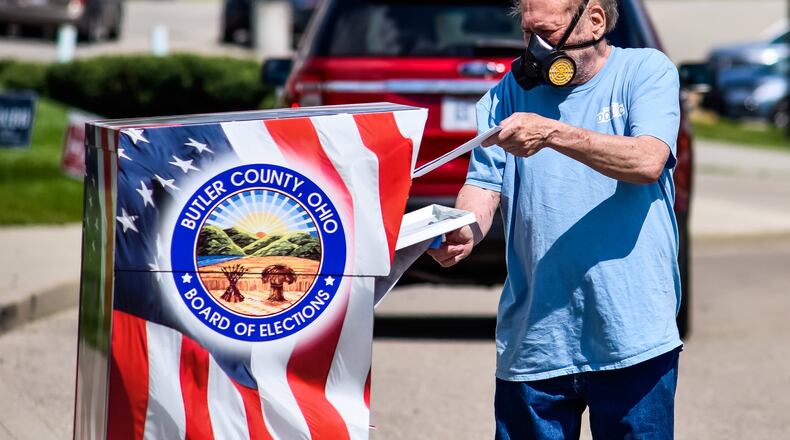By the time the public health order was issued by state health director Dr. Amy Acton, workers had already set up the 88 polls. So some had to be paid or partially paid the standard $200 poll worker stipend for the work and the board had extra costs for holding the primary using only paper ballots last month. During the last presidential primary, 4,219 mail-in votes were cast, compared to 40,464 this year.
The board paid just more than $1 million for the election compared to $765,506 in 2016. The state has reimbursed the county for $132,973 of those funds.
RELATED: Ohio elections: What happens if November’s ballots must be all-absentee again?
The largest cost was payroll and overtime, which cost $695,766 this year and $438,281 four years ago. Corbin said the board had to partially pay poll workers for the dry run in March and again to help with mail-in ballots.
“We still paid the poll workers something, we just didn’t pay them the full amount,” Corbin said. “But then we had temporary workers come in for six weeks longer than we normally do and we were doing overtime and we were buying supplies like crazy. We went through $50,000 worth of postage.”
Corbin said at the moment they are being told the November election will be in-person, but if it’s not the county will incur more expenses for supplies. He said they had enough supplies like paper ballots, envelopes and scanners to handle both the primary and general elections in a normal year. The total election budget for this year was $3.8 million but Corbin said it is anybody’s guess what the final tally will be, with so many uncertainties.
“We don’t even know where to start,” Corbin said. “Right now all we have is a list of some supplies or some contingency plans we may need to put in place. What we’re really hoping for is the state to release some sort of plan or guidance to give us what to point to.”
The commissioners were not happy with the state reimbursement. Commissioner Don Dixon said he believes they could use some new state coronavirus funding the legislature is considering to cover the shortfall but it still is unfair.
“It’s not a huge number to begin with, but obviously it’s a cost and if we can recover it for our taxpayers I think they should be reimbursed for it,” Dixon said. “They didn’t cancel it (the election), they didn’t cause the confusion. So we’ll have to wait and see.”
The state has supported local elections previously, paying for most of the new voting equipment the commissioners bought for $7.5 million voting machine system last year. The actual local cash outlay was $1.38 million, and the state picked up $3.2 million for the new iPad-like machines. It will cost the Board of Elections about $2.9 million over 10 years for software and licensing fees.
Commissioner T.C. Rogers said he is worried about November.
“It’s short,” Rogers said of the reimbursement amount. “With that kind of math on their part or their kind commitment to back-up local government elections, how can I plan how much a presidential election is going to cost, they may flip it at the last minute to all mail… it’s not good.”
Secretary of State Frank LaRose’s office did not respond to questions about reimbursement or the November election.
About the Author
